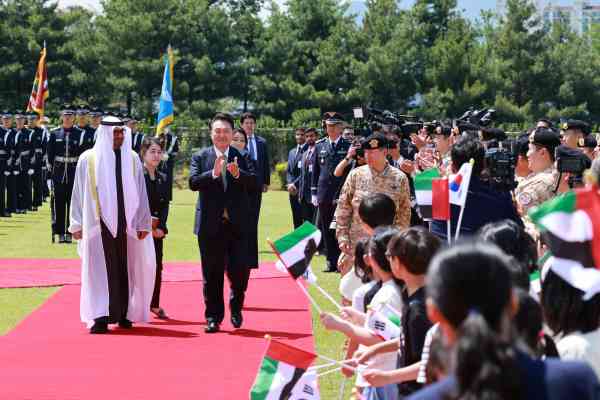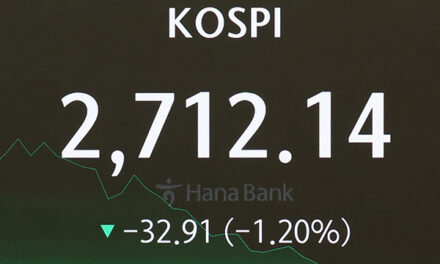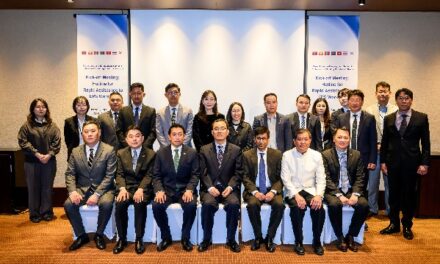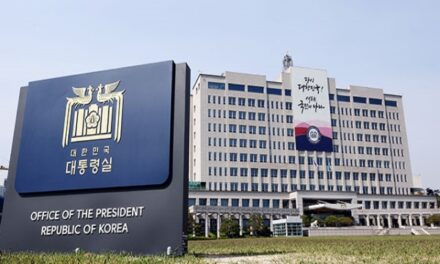Photo : YONHAP News
Anchor: South Korea and the United Arab Emirates(UAE) on Wednesday signed a comprehensive economic partnership agreement(CEPA), Seoul’s first such pact with an Arab nation. President Yoon Suk Yeol and UAE President Mohammed bin Zayed Al Nahyan held summit talks in Seoul, seeking ways to boost their cooperation.
Kim Bum-soo has more.
Report:
[Sound bite: Official welcome ceremony before S. Korea-UAE Summit]
A grand welcoming ceremony featuring the Air Force’s Black Eagles aerobatic team and honor guard inspections signaled a wider market opening between South Korea and the United Arab Emirates(UAE).
President Yoon Suk Yeol and UAE President Mohamed bin Zayed Al Nahyan held bilateral talks at the top office in Seoul on Wednesday, launching the first free trade agreement between South Korea and an Arab country.
The UAE is South Korea’s 14th largest trading partner, with an annual bilateral trade volume exceeding 20 billion U.S. dollars.
With the comprehensive economic partnership agreement(CEPA) officially signed, the two sides are scrapping tariffs on more than 90 percent of their trade items over the next ten years, including automobiles and crude oil.
While exporting 483 million dollars worth of cars to the UAE, Seoul last year imported over ten percent of its crude oil purchases from the Arab country.
With the bilateral free trade deal, the UAE is also set to open its online game and music markets to the highest level to South Korea.
On the first day of his state visit to South Korea on Tuesday, Sheikh Mohamed held meetings with leaders of key South Korean businesses, including Samsung Electronics, Hyundai Motor and SK groups as well as Hybe, the entertainment agency for K-pop superstars BTS.
At the bilateral talks, the UAE’s sovereign wealth fund also reaffirmed its plan to invest 30 billion dollars in South Korea, which was agreed during Yoon’s state visit to Abu Dhabi last year.
The two countries also signed a memorandum of intent for South Korea’s construction of at least six liquefied natural gas carriers worth around one-point-five billion dollars.
Kim Bum-soo, KBS World Radio News.





